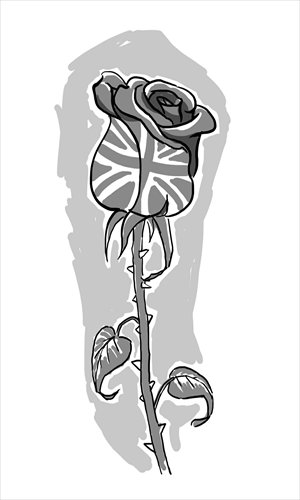Thatcher’s ideology tempered by realism

The late Margaret Thatcher, former prime minister of the UK from 1979 to 1990, came to power during the Cold War era (1945-1989), when the Western world proved supreme. Although the era is coming to an end, most Asian countries are still being led by the West.
From the autumn of 1976 to the spring of 1977, the "iron lady" paid visits to eight Asia-Pacific countries including China in her role, as then leader of the opposition in the UK.
However, one chapter of her autobiography, The Path to Power, unfortunately shows that her understanding of China is only like the impression of an ordinary Western tourist on their first trip to China.
The ideas of Thatcher toward China were heavily impacted by political ideology. Until 2000, she still believed that a democratic India would be a check and balance against China.
She was branded by that era, an era which was actually the "End of Empires" according to A Global History: From Prehistory to the 21st Century, written by American scholar Leften Stavros Stavrianos.
According to Stavrianos' statistics, 96 countries, which boosted a third of the world population, won their independence from 1944 to 1985. More than half of them were former colonies of the UK.
In the same autobiography, Thatcher spared one chapter for the social problems she was concerned about. By praising "virtue's rewards," the title of this chapter, the iron lady still firmly stuck to her guns on "strengthening the family, curbing welfare dependency and reducing crime."
"End of Empires" and "Virtue's Rewards" outlined both the background and the platform of her age, and to some extent, projected the possible changes of the international political and economic framework in the future.
Although she attracted a lot of controversies during her tenure, Thatcher deserved the honor of an outstanding stateswoman. However, her prominence cannot escape from the limitations of her age.
Thatcher's name is remembered by many Chinese, mainly because of her involvement in the peaceful settlement of the Hong Kong issue, and the new developments in Sino-UK relations during her tenure. In fact, it was this turning point that broke ground for the current healthy state of Sino-UK relations.
As for the peaceful settlement of the Hong Kong issue, Thatcher's contribution was nothing but following the tune of the times, which to a large extent, she was forced to do.
In the Cold War, Thatcher deserved her nickname of "the iron lady." Cold War thinking blocked her ability to explore intensively about China, Asia and even the whole world. But thankfully, she was a realist.
The truth is that many Western countries are still observing China from an ideological perspective that was bred during the Cold War. But in the meantime, they are also moving close to China because of realistic needs.
Stavrianos quotes Adam Smith, the founding father of modern economics, who was also worshiped by Thatcher. Smith predicted that the natives of the East and West Indies "may grow stronger, or those of Europe may grow weaker, and the inhabitants of all different quarters of the world may arrive at the equality of courage and force which, by inspiring mutual fear, can alone overawe independent nations into some respect for the rights of one another."
The author is a senior editor with the People's Daily. He is now stationed in Bangkok. dinggang@globaltimes.com.cn